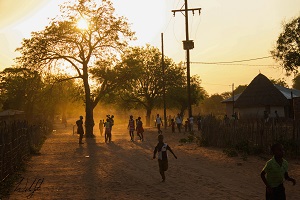Neelam Rahim | neelam@radioislam.co.za
4-minute read
21 March 2023 | 22:53

Image: The Borgen Project
Almost three decades into our democracy and millions of South African’s human rights are still only a dream. This includes issues such as gender violence, xenophobia, corruption and crime. Millions of South Africans live in informal settlements without running water or electricity. Crime runs rampant, with even police officers too scared to enter some areas.
Many South Africans are rightfully sceptical in questioning what in the world have we got to celebrate Human Rights Day and commemoration—an essential part of our history which has not been delivered for us.
Speaking to Radio Islam International, South African Human Rights commissioner Chris Nissen highlighted three significant problems facing the vulnerable and poor in South Africa: unemployment, poverty and inequality.
“We have moved very far with regard to policies and putting into place practice, but we have really been slow in implementation,” he says.
While South Africans may have the right to vote, to move, a passport, and the freedom to expression, amongst other political rights, Nissen argues that the lack is in the right to socio-economic rights consisting of health, education and sanitation.
According to Nissen, the lack of responsibility, commitment and passion from the appointed to execute the mandate of the Constitution has been failing to serve our people. Whilst the access right to healthcare exists, people are standing from the early morning hours in long queues waiting for assistance and, at times, meeting the news of no medication or an appointment to return the next day.
Meanwhile, from 1994 until the early 2000s, South Africa had been harboured as the rainbow nation for several reasons. It was expected that we had embarked on a level of reconciliation which only some countries could do.
Nissen said the inequality increased along with poverty and unemployment, resulting in many other social consequences.
He says, “We have got the rainbow nation dream deferred.”
The history of Human Rights Day is grounded in the Sharpeville Massacre on 21 March 1960, where the apartheid police shot and killed 69 people in a peaceful protest march.
Listen to the full interview on Sabaahul Muslim with ML Junaid Kharsany and his guest, Chris Nissen.







0 Comments